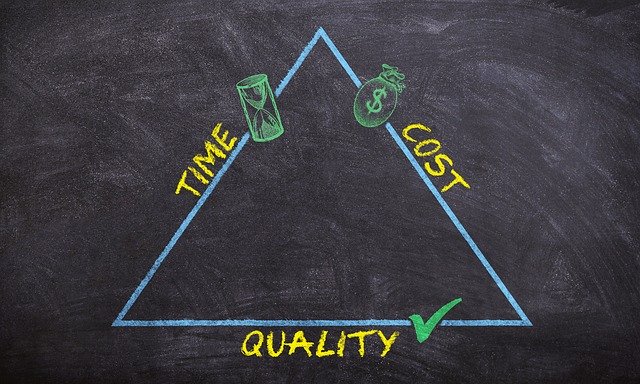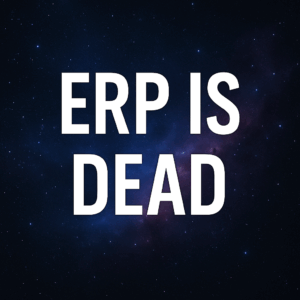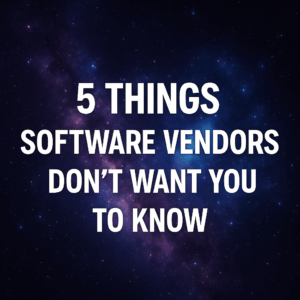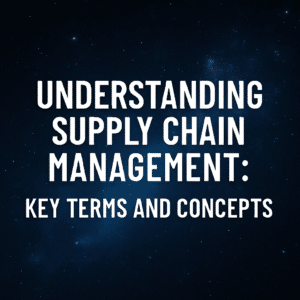We have talked a lot recently about making the move to your first inclusive ERP solution or building your digital transformation strategy. Whether you are moving from QuickBooks, Excel, or another legacy platform – this is a big move. You have considered the benefits and done some research, but now you begin to realize the costs that could be involved with this transformation.
As you begin to budget for what will likely be one of the most significant transformations your business has experienced thus far, we have a few tactics that will guide your digital transformation framework:
Table of Contents
ToggleJustify your Return on Investment (ROI):
- Need: Ultimately, the decision to move to a new ERP platform needs to be driven by business needs. It cannot simply be because you think you need one or employees are asking for more automation.
- Business Case: This feedback can be great starting points and maybe why you started looking in the first place, but make sure you are running some form of business case. A business case does not always need to be documented in labor savings and hard dollars, it can also include intangible benefits and strategic needs such as the ability to scale, the ability to more quickly respond to customer or market demands or to position for potential M&A activity.
Accept that this will cost more than you like:
- Acceptance: It goes without saying, but ERP is expensive. Always has been and always will be.
- Don’t Compare: Where most small and mid-size business owners falter, is they try to compare their current IT investment to an ERP. This logic rarely works. If you are set on comparing QuickBooks or your legacy financial and production point solutions, it will not likely add up the same, nor should it.
- Don’t Count on Immediate Savings: If you do have an overabundance of current systems you might find some small savings, but don’t count on it. This is why the previous point suggested running an ROI analysis. You need to run from the perspective of your future state and where ERP will allow you to go.
Expect your Total Cost of Ownership (TCO)to be well beyond what your vendor has quoted:
- Read Between the Numbers: ERP sales folks rarely lie flat out; they just don’t share the entire truth. Your quote for ERP and implementation services has a number of assumptions, most of which will not hold up to reality.
- There will be Unforeseen Costs: Especially given this is your first ERP implementation, there will be additional hurdles around things like user adoption, process modification and data transfer that your contract doesn’t necessarily assume. I remember buying my first house, thinking that the sales price negotiated would be what I end up paying. Clearly, I forgot to consider added fees, commissions, taxes, HOA dues and the never-ending horror of home improvement. The same goes with your ERP, the costs will add up through unforeseen complexities, process and change adoption, data and integration issues to name a few. I’m glad I have my home and in the long run the equity build should justify the costs, and in the end your ERP system should more than pay for itself.
This will take significantly more time than you think:
- Time and Resources: And time translates to cost, both direct and indirect. In your memory, you may be recalling how you got QuickBooks running in a matter of weeks or how your custom MRP solution was up in no time. The difference here is that you are integrating all of your business processes into one, consolidated solution, and this will likely take several months, or more, depending on the size and complexity of your business.
- Your Business is the Priority: Your NetSuite, Microsoft, Acumatica or any other software rep will state that they have done these thousands of times before, that your business is not much different than others and that they can get the system up and running in no time through their accelerators. This is a true statement, they can get the software implemented in little time, however, YOU and YOUR EMPLOYEES have not done this before, much fewer thousands of times and it will take significant time to adapt your business, your processes and your people into the new ERP.

In summary, this is going to cost more and take longer to implement than you want. Justify that it makes sense through a cost and benefit analysis, then get over it and think ahead. You might also consider reaching out to a third party for help through the software evaluation, budget setting, vendor negotiations and implementation. We often hear from SMB owners and managers that they are a small business and will try to handle this themselves. After all, they have implemented and managed other systems and processes and have a good handle on the day-to-day of the company. While true, most small companies are stretched thin, everyone is wearing multiple hats and nobody has time to spare. Trying to manage an ERP implementation internally may put more stress on you and your business than you think, ultimately increasing the time, cost and risk of your implementation.
If you have any additional questions regarding ERP budgeting, please feel free to reach out to me directly via email, or follow me on LinkedIn.





